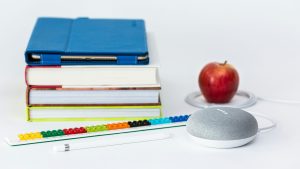Classroom Debates: Building Argumentation Skills
Welcome to the world of classroom debates, where students learn to develop and defend their arguments in a structured and respectful manner. Debating is not only a fun and engaging educational activity, but it also helps students hone their critical thinking, public speaking, and persuasion skills. In this article, we will explore the benefits of incorporating classroom debates into the curriculum and how they can effectively build argumentation skills in students.
The Importance of Classroom Debates
Classroom debates provide a unique opportunity for students to actively engage in discussions and express their opinions on various topics. They promote critical thinking by encouraging students to analyze and evaluate different perspectives and come to their own conclusions. These skills are crucial in today’s society, where information is readily available, and individuals must learn to sift through it to form well-informed opinions.
Additionally, debates improve public speaking skills, an essential skill in both personal and professional life. Students learn to articulate their thoughts, support their arguments with evidence, and rebut counterarguments effectively. This not only boosts their confidence but also prepares them for future academic and career pursuits.
Building Argumentation Skills through Classroom Debates
Developing Logical and Coherent Arguments
One of the primary objectives of classroom debates is to teach students how to construct logical and coherent arguments. During a debate, students must support their stance with sound reasoning and credible evidence. This requires them to research and gather information from various sources, critically analyze it, and use it to support their arguments. This process develops students’ argumentation skills, as they learn how to present their ideas in a structured and convincing manner.
Responding to Counterarguments
Participating in a debate also teaches students how to respond to counterarguments effectively. In a formal debate, there will always be challenges to the arguments presented. Students must learn to actively listen to their opponents, understand their points, and offer a rebuttal that weakens their position. This process encourages students to think critically and look at the issue from different perspectives. It also helps them develop empathy and respect for differing opinions.
Cultivating Persuasion Skills
Persuasion is a valuable life skill, and classroom debates provide an ideal platform for students to cultivate it. When students participate in a debate, they must not only convince the judge, but also persuade their peers to support their argument. This requires them to communicate effectively, using rhetorical devices, convincing language, and engaging body language. By honing this skill, students can not only win debates but also navigate challenging situations in personal and professional life.
Tips for Running Effective Classroom Debates
Choose Appropriate Topics
The success of a debate depends on the topic chosen. It should be relevant, thought-provoking, and age-appropriate for the students. A good topic will stimulate discussions, encourage critical thinking, and offer multiple perspectives for students to consider.
Encourage Active Listening
It is vital to create a safe and respectful environment for debates to take place. Encourage active listening by requiring students to take notes on their opponents’ arguments. This not only helps them build rebuttals but also ensures that all ideas are given due consideration.
Provide Constructive Feedback
As a facilitator, it is essential to provide constructive feedback to students. This not only helps them improve their debating skills but also encourages them to continue participating. Praise their strengths and provide suggestions for improvement in a respectful manner.
Time Management
Debates can be a lengthy process, and it is crucial to manage time effectively. Set time limits for each speaker and allocate time for rebuttals and audience questions. This ensures that all students are given equal opportunity to participate and that the debate stays on track.










